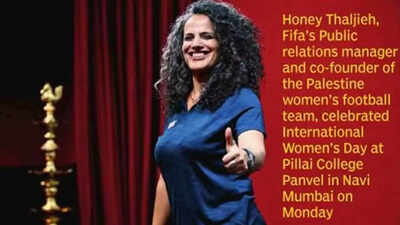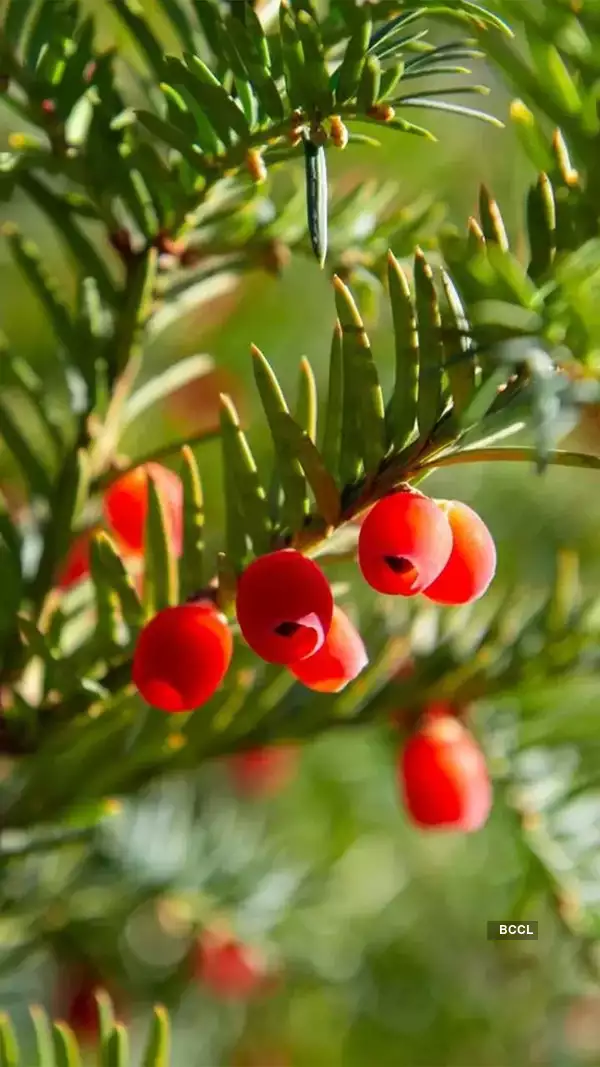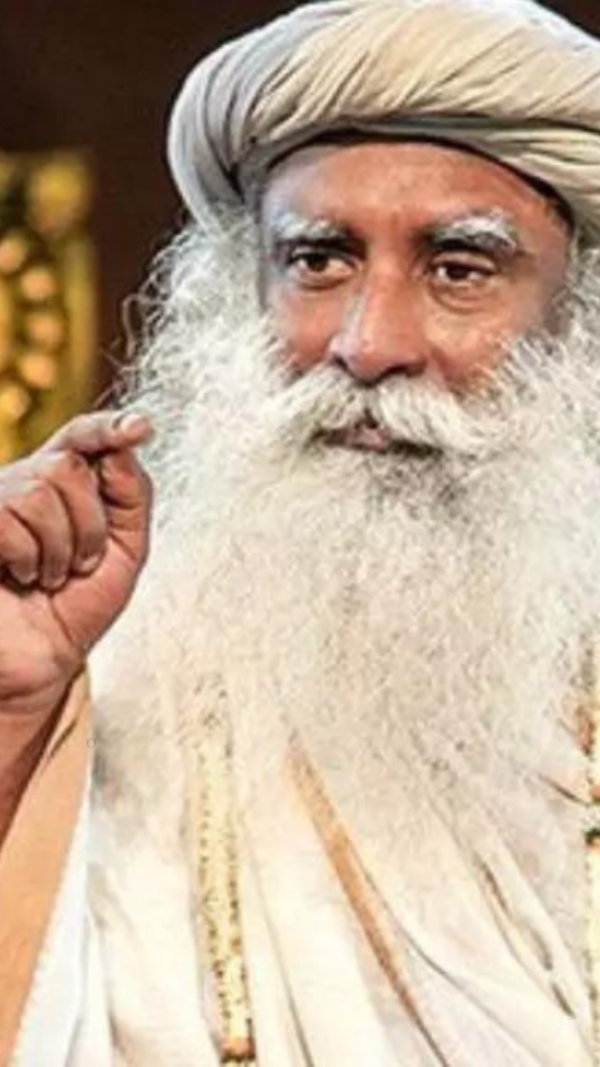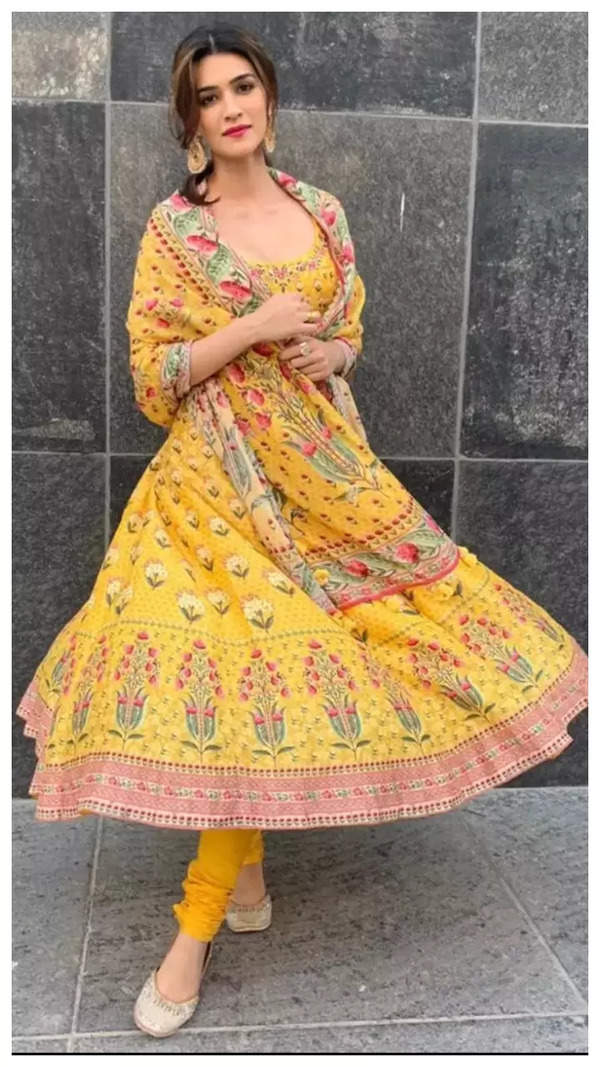- News
- Sports News
- Against all odds: 'Football can change narrative of all Palestinians', says Honey Thaljieh
Trending
Against all odds: 'Football can change narrative of all Palestinians', says Honey Thaljieh
Honey Thaljieh, co-founder and first captain of the Palestine women's national football team, aims to inspire change through sports. Growing up in Bethlehem, she broke stereotypes about Arab women in sports. Now working with FIFA, Thaljieh advocates for equality and uses football to empower underprivileged youth and promote justice, especially for those in conflict zones like her homeland.
Country's first women's national captain Honey Thaljieh wants to inspire change through her story
NAVI MUMBAI: Honey Thaljieh knows the road she has travelled. Right from when she was a seven-year-old girl who would often pass by a group of boys playing football in the streets of occupied Bethlehem.
One day, the boys invited her to join them and her skills caught the eye. It was just a humble beginning to a lifelong bond with the 'beautiful game'. One that would see Thaljieh become a co-founder and the first captain of the Palestine women's national foot ball team. One that would help her shatter stereotypes about Arab women playing sport.
Football has indeed paved the way for Thaljieh to accomplish goals way beyond the imagination of that innocent seven-year-old girl whose footwork left the boys impressed that day. "I grew up in such a context where I only wanted an opportunity and football gave it to me," Thaljieh tells TOI.
And wherever Thaljieh goes about her business, be it championing the causes of equality and inclusion, or promoting social development initiatives, she feels a sense of joy. A joy from being the influential figure she missed having in her life as a young Palestinian girl growing up in a hostile region.
"Everywhere I go, it reminds me of my own story," Thaljieh says, shortly after delivering a talk to Pillai College students here in celebration of International Women's Day. "Everywhere I am involved in projects, whether with girls, with boys, disadvantaged groups, slums, refugee areas, villages, all these disadvantaged groups at all levels, it reminds me where I come from. And that's where I find joy, because I strive to be the kind of influence I wished I had as a young Palestinian girl growing up in a challenging environment. I believe that every child deserves access to sports, and it should be recognized as a fundamental right."
On what is her second visit to the city, Thaljieh has been busy. From giving a lecture at the 6th edition of the Pillai Fifa CIES Programme in sports management and interacting with local students, to taking part in a friendly football game with girls from Slum Soccer - an NGO dedicated to uplifting underprivileged youth, she continues trying to bring about change.
"I want to share my story with young girls to inspire change in their lives, because it's not acceptable that we still have children living under poverty," says Thaljieh who was also honoured by Soroptimist International, an organisation advocating for human rights and gender equality. "I want a better world where opportunities are for everyone, regardless of their background, nationality, ethnicity, or religion."
Those words make you wonder about the plight of her own people, who continue to suffer the devastating consequences of the war in Gaza. "The situation in Palestine has not been a recent development, it is part of a long-standing fight for equality, justice, and freedom since 1948," Thaljieh, who is based in Zurich, points out. "I come from a land that should be synonymous with peace, yet it is mired in conflict. This drives my mission to advocate for justice and equality, as we strive to be recognised and respected as human beings with basic rights that everyone deserves. And that's why I chose football - to fight injustices, to fight inequalities."
It may not alter the immediate circumstances of her people, she concedes, but then Thaljieh is best placed to appreciate how powerful a tool, sport and football can be in transforming lives. "Football can change the narrative of the Palestinian people. Football put us on the map," she says.
"Yes, it's not going to change the immediate situation and bring freedom to Palestinian people in Gaza, the West Bank, or people from any war-torn place, but it empowered me to be here today and speak about justice and equality and freedom for all people."
End of Article
FOLLOW US ON SOCIAL MEDIA










